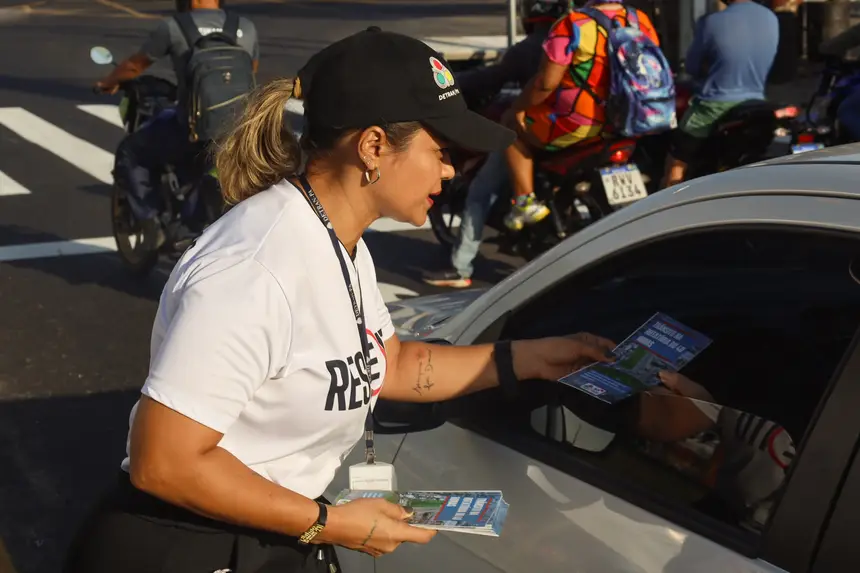Detran warns vehicle drivers about fines for littering
Waste thrown from the vehicle is also considered a traffic violation
Plastic bottles, food scraps, or even packaging, when thrown out of the vehicle window, can result in a traffic fine. The warning comes from the Department of Traffic of the State (Detran), which registered 25 violations in 2024 for throwing objects or substances from the vehicle. In 2023, there were 28 violations recorded, and despite the slight reduction, it remains significant, as many drivers are still unaware of this penalty.
According to the Brazilian Traffic Code (CTB), throwing or abandoning objects or substances on the road is considered a medium violation, with a fine of R$ 130.16 and 4 points on the National Driver's License (CNH).
The litter thrown by drivers can block drains, dirty the streets, as well as cause flooding and even lead to a serious accident. In addition to increasing the chances of accidents on public roads and generating penalties, throwing waste on the road also contributes to environmental pollution. “In the year of COP 30, drivers in Pará need to set an example more than ever and avoid this type of occurrence. In traffic, every action makes a total difference for everyone's safety,” explains Detran's Education Coordinator, Celina Koury.
Considering this scenario of safety and environmental preservation, Detran conducts educational campaigns throughout the year to raise awareness about the risk factors for accidents. In all road actions, it has become routine to distribute trash bags to drivers approached by education agents and reinforce the importance of proper waste disposal. “The car should also be a space of care and sustainable responsibility for everyone involved in safer traffic,” says Koury.
Other actions also contribute to making traffic less polluting. Among them, preferring vehicles that emit fewer pollutants; performing preventive maintenance on the car to avoid, for example, the emission of particles caused by tire and brake wear, as well as the improper disposal of oils on the road; and disposing of parts and fluids in appropriate locations for recycling, such as tires and batteries.
Text: Anna Kelly Saraiva – Ascom/Detran










